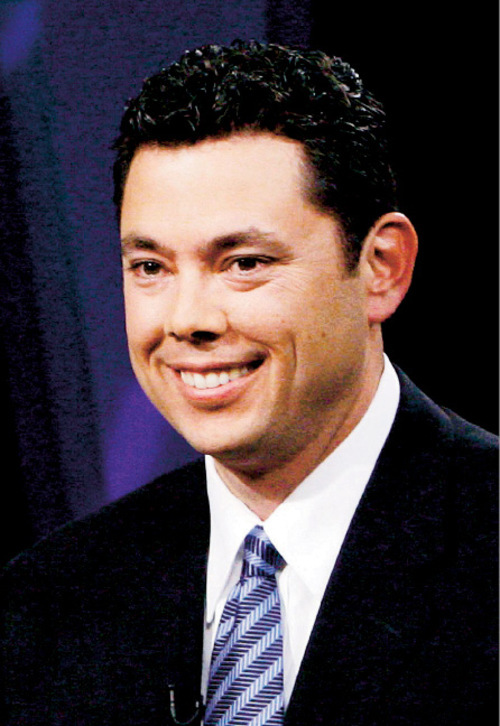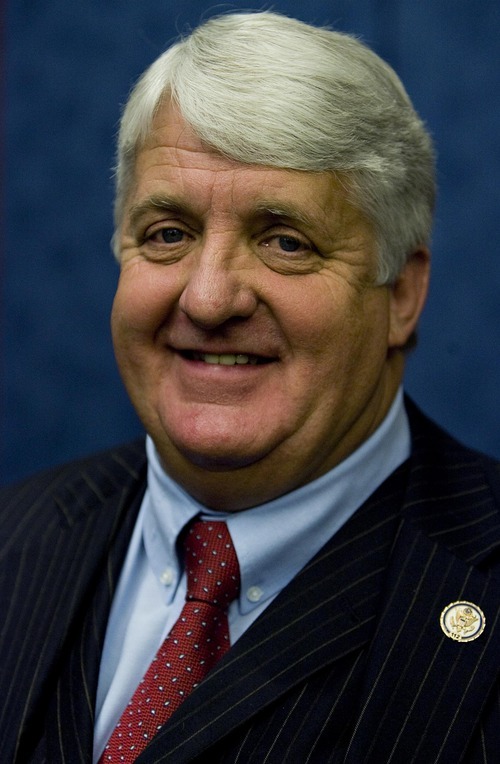This is an archived article that was published on sltrib.com in 2011, and information in the article may be outdated. It is provided only for personal research purposes and may not be reprinted.
It's still more than a year until the Utah Republican Convention and, at this point, none of the politicians flirting with a potential challenge against Sen. Orrin Hatch has stepped forward.
But the six-term senator is in full-blown campaign mode. His latest financial disclosure shows he has amassed nearly $3 million and expanded his campaign staff to 20 people.
"We had to start early and we have done so," said Hatch campaign manager Dave Hansen, who doesn't want to see his boss become the next member of Congress ousted by tea-party Republicans. "We are not running against anybody. We are trying to make sure we are organized the way we want to be organized."
Hatch raised $774,000 from the start of the year until the end of March. That haul is his best since he collected $1.1 million in the months leading up to his 2006 victory.
The contributions came from a variety of businesses ranging from the Walt Disney Co. to R.J. Reynolds. The Marriott Hotel chain and members of that prominent Mormon family contributed $34,000 since the beginning of the year. Hatch also received $3,000 from Koch Industries, an energy company run by two sons who have helped spearhead the tea-party movement.
Rep. Jason Chaffetz, R-Utah, is seen not only as a prominent tea-party supporter, but, by his own statements, also as a possible challenger to Hatch. Yet, while Hatch is building a mountain of money, Chaffetz's fundraising has not picked up considerably.
He raised $110,000 in the first three months of the year and now has $184,000 at his disposal. He gathered more than $25,000 from political action committees with ties to the banking and credit card industries.
Chaffetz also took in $10,000 from members of Utah's Rawle family, who own Check City payday-loan stores, and $10,000 from a fundraiser in Florida, involving members of the medical profession.
The two-term House member has repeatedly said that a massive campaign account is not necessary to win the GOP nomination in Utah, where Republicans will elect delegates in neighborhood meetings in March. Those delegates then will gather for a state convention in May 2012. A candidate who gets support from 60 percent of the delegates becomes the party nominee. Otherwise, the top two advance to a June primary.
"Money has never been my biggest issue," he said. "We are doing just fine. I have plenty."
Hansen argues that money is important, particularly at this stage. It has allowed Hatch to hire 20 campaign employees by the end of March and four more since. A few, notably Evelyn Call, Michelle Scharf and Julian Babbitt, are well-known among the state's tea-party groups. Most of these people spend their time identifying potential delegates in a bid to stack the convention in Hatch's favor.
Former Sen. Bob Bennett, R-Utah, failed to do this in 2010 and saw his campaign for a fourth term end when two of his challengers won more support in the convention. The eventual victor was Sen. Mike Lee, R-Utah.
For the second straight quarter, Lee's campaign remains in debt. He raised $32,100 by the end of March but spent twice that. When you subtract his outstanding debts from what remains in his account, Lee is roughly $35,000 in the red.
His campaign manager, Dan Hauser, says that is a short-term problem that will be corrected by June, the next reporting deadline. Hauser, who also works as Lee's state director, said the senator has focused on setting up his office and drafting his first legislation.
"We certainly were not very focused on fundraising. We just weren't. But we are now," he said, predicting that Lee would raise more than a quarter of a million dollars in the next three months.
Five-term Rep. Rob Bishop, R-Utah, normally raises the least amount among Utah's delegation and he continued the trend. He collected $9,500 and spent a little more than $10,000, half of which were donations to other GOP groups. He ended the quarter with $63,000 in his account.
In contrast, Rep. Jim Matheson, D-Utah, is an aggressive fundraiser, who spent $2.5 million on his narrow 2010 electoral victory. That left him with $40,000 in his account at the start of the year. He has raised more than $250,000 since, $15,000 coming from the Democratic Congressional Campaign Committee's Front Line program, which helps House members expected to face tough re-election contests.
"There wasn't much left in the cupboard," Matheson said. "So it is always nice to get off to a good start."
The six-term congressman is raising money for another run at elected office, but he hasn't decided if he wants to try for another House term or take a shot at the Senate or governor's office. He has said that the results of redistricting later this year will play into his decision.
"I assume I'll be on the ballot," he said, even if he doesn't yet know in which slot.
Campaign cash
Latest disclosures show that Hatch and Matheson are aggressively seeking campaign contributions for their next races in 2012.
Sen. Orrin Hatch • Contributions this quarter: $774,000
Money in campaign account: $2,949,000
Sen. Mike Lee* • Contributions this quarter: $32,000
Money in campaign account: $24,000
Rep. Jim Matheson • Contributions this quarter: $252,000
Money in campaign account: $224,000
Rep. Rob Bishop • Contributions this quarter: $9,500
Money in campaign account: $63,000
Rep. Jason Chaffetz • Contributions this quarter: $110,000
Money in campaign account: $184,000
Source: FEC reports
* Because of unpaid bill, Lee's campaign is about $35,000 in debt.





